The 13th edition of the Arava International Film Festival will take place from November 14 – 23, 2024, under the starlit desert skies. The festival seeks to encourage and nurture artistic creation, even in these difficult times, and to provide a quiet, supportive, place of respite, and extends the hope that all the hostages and the soldiers will return safely to their homes.
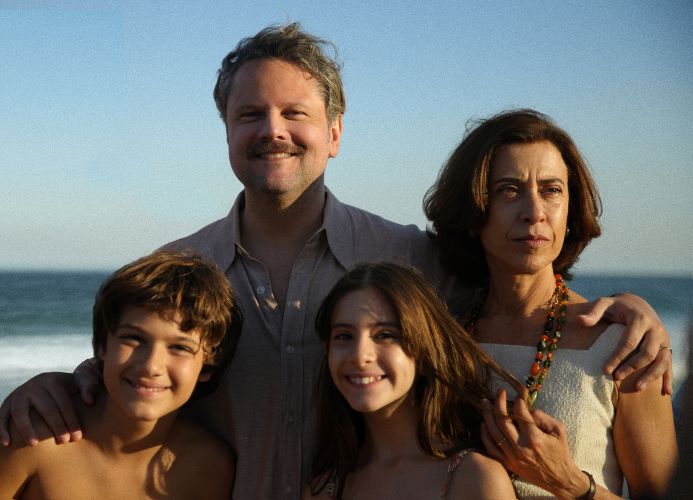
Opening the festival will be I’m Still Here, directed by Brazilian filmmaker Walter Salles (Central Station), which held its world premiere at the 81st Venice International Film Festival, where it won the Golden Osella for Best Screenplay. The film is set in Brazil, during the 1970s, when the country was under a military dictatorship. The screenplay by Murilo Hauser and Heitor Lorega, is based on the true events described in Marcelo Rubens Paiva’s 2015 memoir Ainda Estou Aqui. Fernanda Torres stars as Eunice Paiva, Marcelo’s mother, who searches for her missing husband, congressman Rubens Paiva. The film focuses on the resilience and strength of Eunice and the family’s five children as they contend with Rubens’ abduction and disappearance. The film was chosen as Brazil’s entry for Best International Feature Film at the 97th Academy Awards.
Festival Highlights
The festival will launch a new competition this year for Short Israeli films, which will include seven films. In addition, the festival will hold the annual screening of the three Israeli short films produced by the Arava Film Foundation.
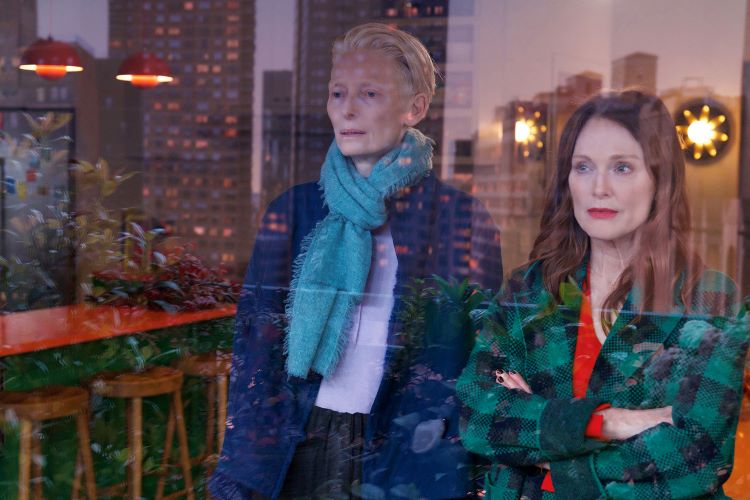
Several award-winning films will be featured at the festival. Pedro Almodovar’s The Room Next Door, his first English language film, was awarded the Golden Lion at the 81st Venice International Film Festival. Based on the novel What Are You Going Through by Sigrid Nunez, the film stars Tilda Swinton stars as Martha, a former war correspondent who reconnects with an old friend, author Ingrid (Julianne Moore), at a crucial juncture in her life. The film will be distributed over the course of the year by Lev Cinema.

Anora, written and directed by Sean Baker, (The Florida Project 2017, Red Rocket 2021) won the Palm d’Or at the 77th Cannes Film Festival. Mikey Madison stars as Anora, a young exotic dancer and sex worker from Brooklyn who meets and marries Ivan (Mark Eydelshteyn), the son of a Russian oligarch. It’s a fantasy come true for Ani, as she is known, until Ivan’s parents find out, and no surprise, they are seriously against this match. The film will be distributed over the course of the year by Lev Cinema.
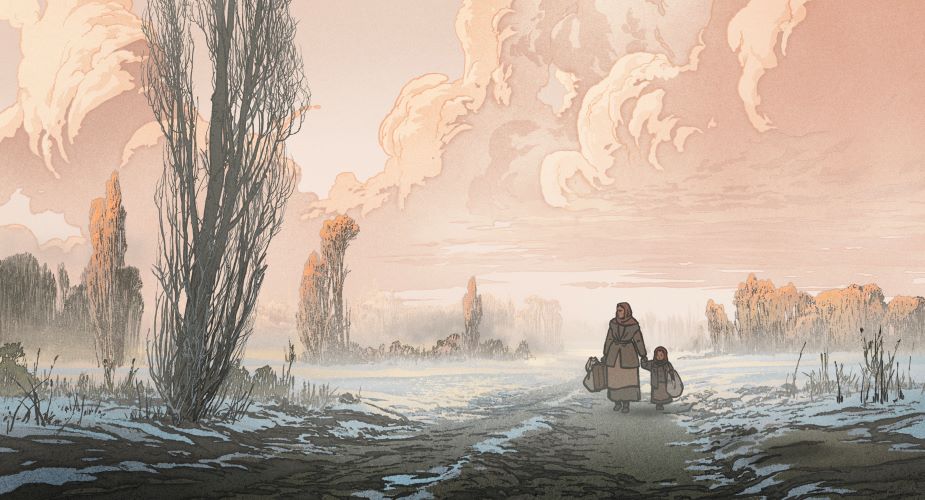
The Most Precious of Cargoes, directed by Michel Hazanavicius, held its world premiere in the official competition at the 77th Cannes Film Festival. The hand-drawn animated film, is an adaptation of the eponymous novel by Jean-Claude Grumberg, who co-wrote the screenplay with Hazanavicius. The film follows a poor, Polish, woodcutter (Grégory Gadeois) and his wife (Dominique Blanc), who live in the forest. One day, the wife saves a baby who was thrown from one of the many trains that passed through the forest on their way to concentration camps. The couple are then confronted with a choice – whether they should protect and care for the Jewish baby, a choice that will change their lives.
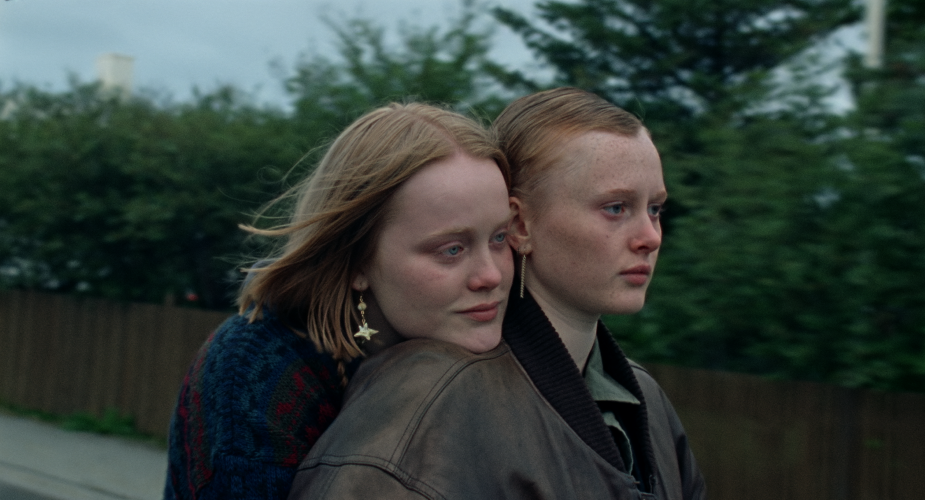
Icelandic filmmaker Rúnar Rúnarsson’s When the Light Breaks was the opening film for the Un Certain Regard selection of the 2024 Cannes Film Festival. The film takes place over the course of a single summer’s day in Iceland, exploring grief and relationships as Una, a young art student, contends with the outcome of a tragic accident.
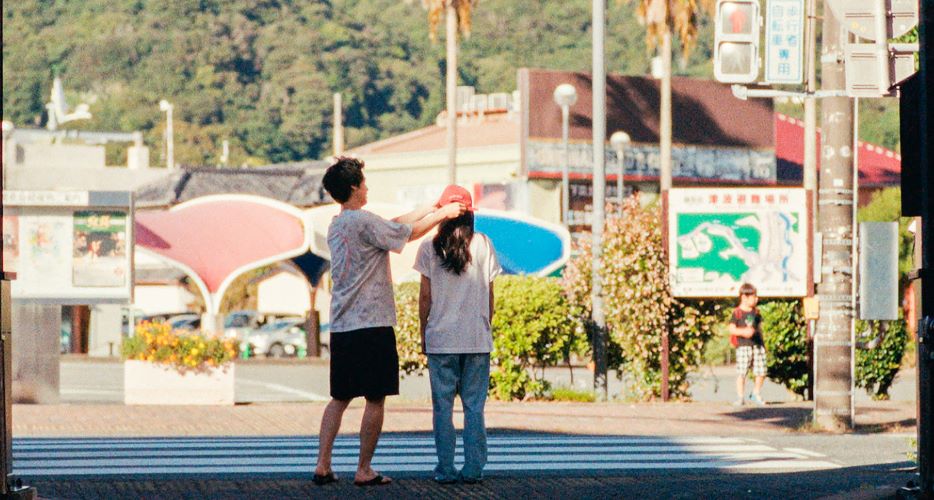
Super Happy Forever, the latest film from director Kohei Igarashi, whose 2017 film The Night I Swam was screened at the Arava Festival seven years ago, opened the Venice Days program at the Venice International Film Festival. Sano (Hiroki Sano) returns to visit the Japanese beach resort where he fell in love with his wife Nagi (Nairu Yamamoto) five years previously.
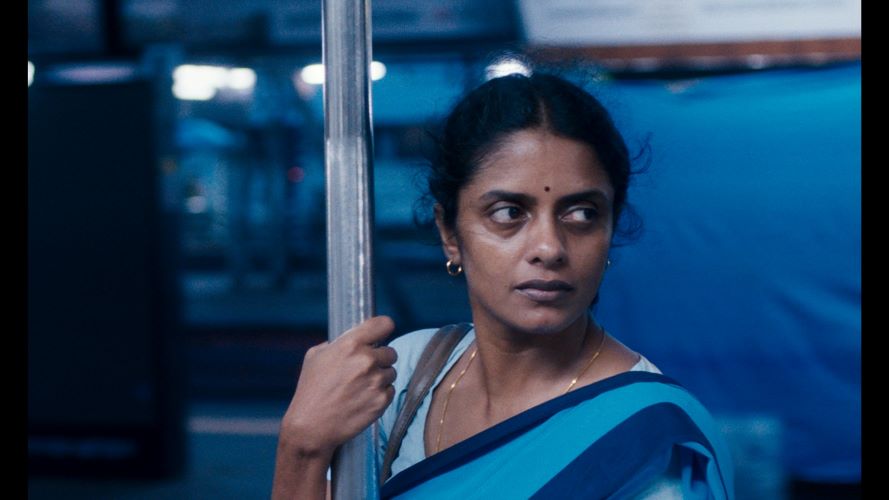
Winner of the Grand Prix at the 2024 Cannes Film Festival, All We Imagine as Light, written and directed by Payal Kapadia tells the story of two very different women against the backdrop of life in Mumbai. Prabha (Kani Kusruti) is an experienced nurse dedicated to her job, yet devoid of a personal life. Although she is very caring towards her patients, and sincerely helpful to her fellow nurses, she does not seek out fun or friendship, keeping her distance from others. This is due in part to her difficult personal status – following an arranged marriage, her husband left India to work in Germany, and she has not had any contact with him for over a year.
Anu (Divya Prabha) is young and full of life and seems to see her job as an unavoidable intrusion between clandestine meetings with her Muslim boyfriend Shiaz (Hridhu Haroon). Where Prabha follows tradition at the cost of repressing her feelings, hopes, and dreams, Anu, albeit secretly, defies the strict traditions of her family, and although her future is uncertain, is eager to experience the pleasure of the present moment.
Kusruti embodies Prabha with a visage of secret sorrow, and a stiff demeanor that conceals a tender heart. When their fellow nurse Parvaty (Chhaya Kadam) moves back to her village, Prabha and Anu help her on the journey, and the move away from the crowds and noise of the city gives each of them the space to consider her life and choices. Poetic in its rhythms and images, it’s a beautiful film.
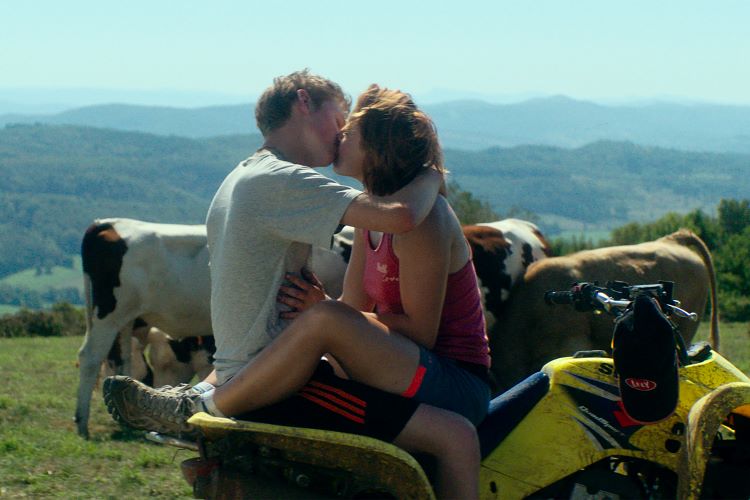
Louise Courvoisier’s debut feature film Holy Cow is one of the relatively rare feel-good festival films. Totone (Clément Faveau) leads a carefree life, hanging out with his friends, drinking, and occasionally hooking up. His father’s death leaves him in charge of his 5-year-old sister Claire (Luna Garret) and Totone sort of steps up but is essentially an impulsive kid at heart. His attempts to take on a steady job and get his sister to school on time are filled with missteps, and when he overcomes his general genial tendency to aimlessness to take on a goal, it’s a lot closer to a daydream than a realistic aim. Totone goes for it with all his youthful energy, few moral qualms, and a lot of help from his friends. Claire is a lot more tolerant, helpful and mature than once would expect from such a young child, but that is perhaps the result of growing up alongside Totone. It’s fun to follow their lively adventures.
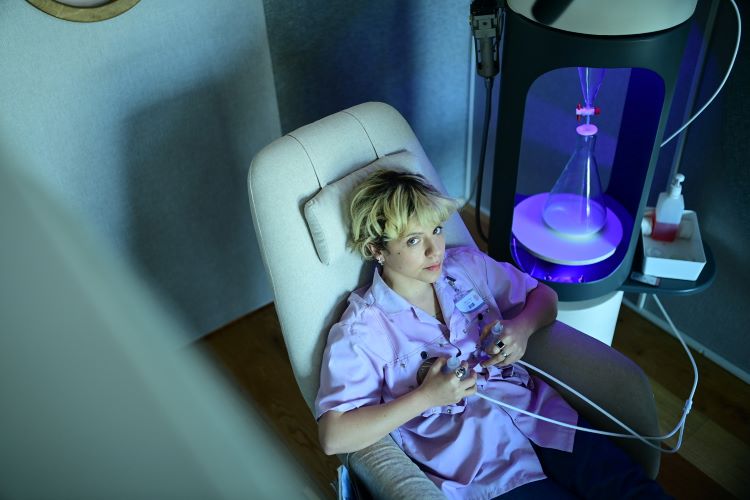
Milk stars singer-songwriter Hila Ruach, who is very appealing and relatable as Tala, a struggling musician who has just had a baby and is trying to figure out motherhood while earning a living selling her breast milk. Winner of the Ophir Award for Best Screenplay, written and directed by Maya Kenig, the film depicts a dystopian milk factory where new mothers in need of money sit in cubicles, attached to a breast pump, while looking at photos of their babies to encourage better flow. Quirky and full of humor, the film takes an honest look at the overwhelming aspects of motherhood, as Tala’s life is plunged into turmoil by the tiny creature (the baby is very cute) she has brought into the world.
It’s also very much about the economic divide, in which Tala and her fellow factory workers pump breast milk for the babies of the rich, while their own babies end up drinking formula. Tala’s encounter with Nili (Hadas Yaron) delineates this divide, as a complex relationship develops that is mutually beneficial and even affectionate, yet always marked by an imbalance of power. Lots of fun and thought-provoking.
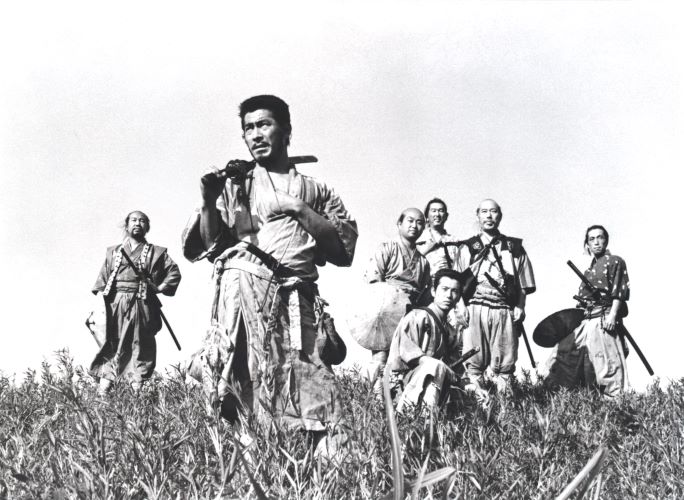
The festival will screen restored versions of several classic films. Celebrating their 40th and 50th anniversaries respectively, there will be screenings of Wim Wenders’ Paris, Texas, and Francis Ford Coppola’s The Conversation. The Seven Samurai, a landmark in film history, will be screened in celebration of its 70th year. Akira Kurosawa’s film is set in a small village in the late 16th century and depicts the struggles of farmers whose crops are repeatedly stolen by bandits. The farmers decide to hire seven samurai to fight the bandits, and the rest is film history.
In memory of the wonderful Gena Rowlands, the festival will screen John Cassavetes’ Gloria (1980). Rowlands stars as Gloria, the ex-girlfriend of a mobster, who saves Phil, her neighbors’ son, from the gangsters who take revenge on his family because his father has been an informant for the FBI. The two race to survive, chased down by both the police and gangs of mobsters. Rowlands often collaborated with her life and work partner Cassavetes, notably on A Woman Under the Influence (1974), which, along with Gloria, earned her an Oscar Best Actress nomination, as well as Opening Night (1977), for which Rowlands won the Silver Bear for Best Actress.
The film version of Hair, directed by Milos Forman, will be shown in a restored version, in memory of actor Treat Williams. The 1968 rock musical with book and lyrics by Gerome Ragni and James Rado and music by Galt MacDermot was a reflection of the changes in American culture and the rise of the counter-culture, as well as an innovator and taboo-breaker onstage. In his 1979 film, Forman kept the amazing music and added narrative heft, which contributed to the success of the adaptation from the loose, happening onstage to a feature film. Bold, sexy, and fearless, Treat Williams brought an irresistible charisma to his role as Berger, leader of the tribe of hippies encountered by the straight-edge Claude Hooper Bukowski (John Savage) on his way to serve in Vietnam.
Information on accommodations and tickets will be available on the Arava Festival website: www.aravaff.co.il/en/
The Arava International Film Festival is the initiative of producer Eyal Shiray in cooperation with the Central Arava Regional Council. The festival is supported by the Central Arava Regional Council, The Ministry of Culture and Sport Film Council, Mifal HaPais, The Office for the Development of the Negev and Galilee, and the Ministry of Regional Cooperation.





